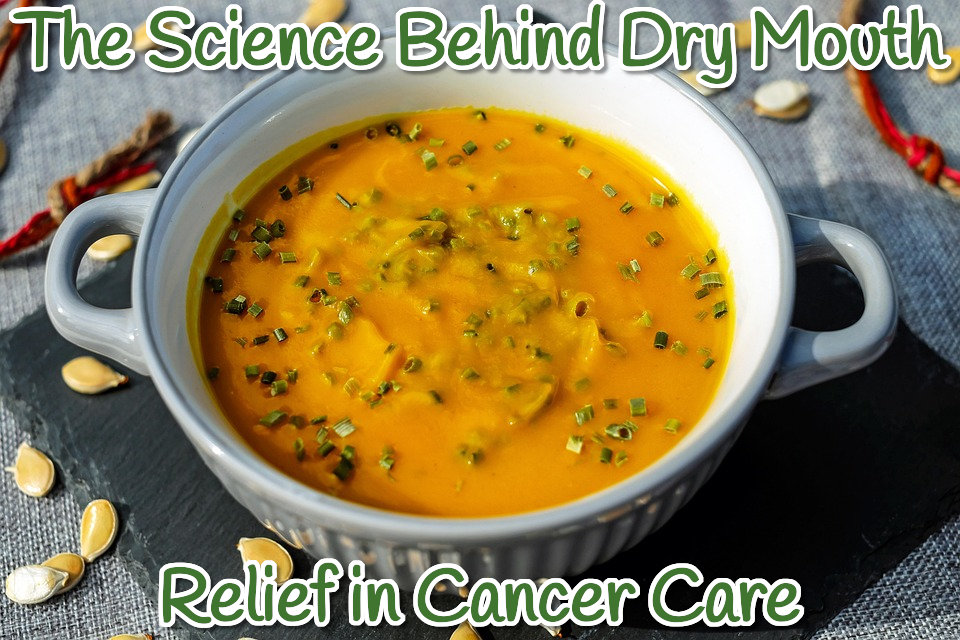Dry Mouth Relief in Cancer Care: Proven Tips and Treatments for Comfort in 2025

September 10th, 2025 | Cancer
Dry mouth, or xerostomia, is a side effect that quietly steals comfort from people already facing the weight of cancer treatment. It isn’t only a little annoyance. This persistent lack of moisture affects eating, speaking, and even sleeping. For those going through chemotherapy or radiation, it can affect nutrition, oral health, and quality of life. Understanding why it happens and how to effectively find relief can make cancer care more bearable and hopeful.
What Causes Dry Mouth During Cancer Treatment?
Saliva keeps your mouth moist, helps with swallowing, and protects teeth and gums. The salivary glands are always at work, but cancer treatments can throw their rhythm off.
Radiation therapy, especially for cancers in the head or neck, often damages these glands. As a result, saliva production drops sharply. Chemotherapy isn’t always kinder—it can change saliva quantity and quality, leaving the mouth feeling sticky, dry, and uncomfortable. On top of that, some cancer meds and pain relievers dry out tissues even more.
When saliva thins out, it’s not just thirst that’s a problem. Food can taste different, swallowing can hurt, and the risk for mouth sores and infections climbs. Nutritional struggles can follow since eating becomes harder and less enjoyable.
Common Causes of Dry Mouth in Cancer Treatment
| Cause | Reason for Dry Mouth |
|---|---|
| Radiation to head or neck | Direct damage to salivary glands |
| Chemotherapy | Alters saliva flow and quality |
| Medications (pain, nausea, etc.) | Side effect of many prescriptions |
| Stress and fatigue | Reduce natural saliva production |
Simply put, dry mouth happens when your body’s natural defense system—saliva—is offline.
Evidence-Based Approaches to Relieving Dry Mouth in Cancer Patients
There’s no single treatment that works for everyone, but there are options grounded in research and patient experience. Clinics often recommend a mix of professional treatments and home-based strategies.
Sugar-free lollipops or lozenges help trigger saliva flow by tapping into the body’s natural reflexes. For example, Sugar Free Queasy Drops for dry mouth relief are formulated to be safe for people with sensitive mouths and can offer gentle stimulation. They provide flavor and moisture, making it easier to swallow and talk comfortably.
Rinsing with alcohol-free, gentle mouthwashes helps remove bacteria and soothe tissues. Some doctors may suggest prescription medications to encourage saliva production or recommend artificial saliva sprays.
Hydration matters most. Sipping water throughout the day, choosing moist foods, and avoiding salty or dry snacks all help.
Dietary tips for dry mouth management:
- Eat soft, moist foods like soups, mashed potatoes, or yogurt.
- Avoid rough, acidic, salty, or spicy foods that can irritate the mouth.
- Try sucking on ice chips or sugar-free popsicles for quick moisture.
The Role of Saliva Substitutes and Stimulation Therapies
When natural function can’t be restored, artificial saliva becomes a helpful backup. These substitutes mimic the feel and protective properties of real saliva. Most are sprays, gels, or rinses designed to coat the mouth, reduce friction, and soothe irritated tissues.
Mechanical means, such as chewing sugar-free gum or sucking on safe, specialized lozenges, work by nudging any working glands to do their job. Sensory stimulation from flavors and sour tastes can sometimes give glands the nudge they need.
Comparing approaches:
- Saliva substitutes: Offer immediate, lasting relief but need to be reapplied often. They are essential when natural saliva is very low or absent.
- Stimulation therapies: Aim to restore natural function where possible. They are best for patients whose glands are damaged but not destroyed.
Safety is always a concern. Products without alcohol, strong flavors, or sugars keep delicate mouths more comfortable and reduce the risk of further problems.
Lifestyle and Practical Tips for Managing Dry Mouth
Daily routines can make a big difference in keeping dry mouth manageable and less disruptive. Small tweaks add up, especially when repeated throughout the day.
Key tips for daily comfort:
- Sip plain water or herbal teas often. Keep a water bottle handy.
- Use a bedside humidifier to maintain moisture while you sleep.
- Avoid caffeine, alcohol, and tobacco—they dry out tissues even more.
- Steer clear of salty, spicy, or acidic foods that can sting or irritate.
- Brush your teeth with fluoride toothpaste and a soft-bristle brush.
- Schedule regular dental visits, even during cancer treatment.
Working with a care team adds extra security. Dentists can spot early signs of tooth decay or infection, while nurses and nutritionists can help you find foods that are gentle, nourishing, and satisfying.
Family, friends, and support groups can offer reminders, encouragement, and practical help—like finding new recipes or checking that your mouth care supplies are stocked.
Conclusion
Dry mouth makes cancer care even tougher, but knowing what causes it and how to manage it offers hope and relief. Addressing dry mouth early improves nutrition, comfort, and quality of life. From specialized lozenges to daily hydration strategies, there are safe and effective options.
Don’t be shy about speaking up if dry mouth is affecting your life. Healthcare providers can help you find the right mix of treatments. Relief is possible, and taking charge of this uncomfortable side effect can make the journey through cancer care a little easier.
Recent Posts
- Treat the Amazing New Mom: Self-Gifting Ideas for Postpartum Recovery
- The Overwhelming Reality: Why Support is Crucial After Postpartum & Chemotherapy
- Understanding Morning Sickness: Beyond the Myth
- Battling Nausea During Chemo Treatment: Tips and Strategies for a More Comfortable Journey
- A Practical Guide to Traveling with a Baby in Winter
Categories
- All-Natural (4)
- Blog (47)
- Cancer (77)
- Diet (15)
- Holidays (27)
- Lifestyle (69)
- Motion Sickness (44)
- Nausea (106)
- New Mothers (41)
- Oncology Testimonials (3)
- Prebiotics (1)
- Preggie Products (11)
- Preggie Testimonial (24)
- Pregnancy (159)
- Queasy Products (7)
- Queasy Testimonial (17)